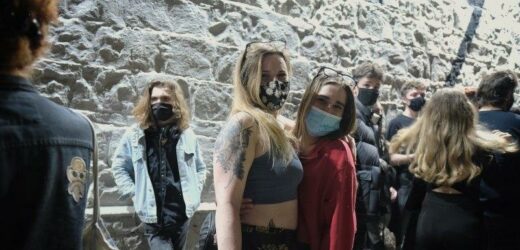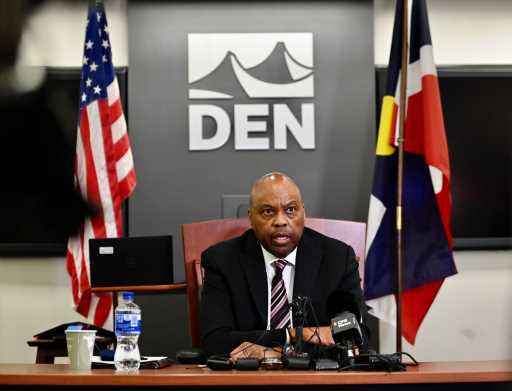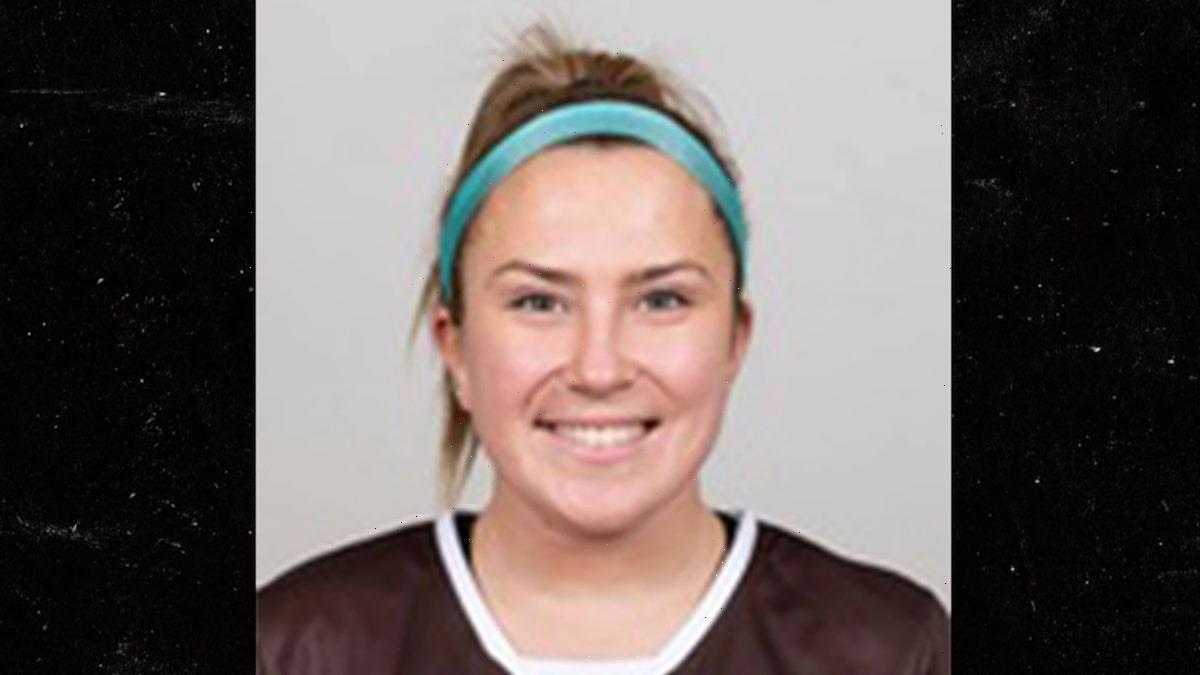By Bianca Hall and Rachael Dexter
Young people hit the streets as Melbourne came out of lockdown at 11.59pm on Thursday. Now their future awaits.Credit:Luis Enrique Ascui
For our free coronavirus pandemic coverage, learn more here.
To be a young adult in late 2021 is to have come of age while COVID-19 put your life on hold. Gone were the dreams of big 18th birthday bashes and a bustling university life. Career ambitions were deferred, exotic holidays abroad with friends a distant dream. Jobs evaporated and social lives shrivelled.
For this generation, unemployment reached 10.8 per cent last month, while participation rates – the number of 15 to 24-year-olds either working or looking for work – slumped to just 51.3 per cent, from 55 per cent in March last year.
As Melbourne awakens from its sixth lockdown, a generation of the city’s youth are coming to terms with the loss of almost two years of their early adult lives.
No other group of young people across the country has suffered quite like those in Melbourne. Whether it be school-leavers whose gap-year plans have been scuttled, or uni students struggling to stay afloat in remote university classes, COVID-19 has irreparably changed the course of these young people’s personal and professional lives.
As Melbourne emerges from lockdowns, work opportunities will open up for young people.Credit:Luis Enrique Ascui
Now taking their first steps forward in a post-lockdown city, parents and peers alike are wondering: will the kids be all right?
“I’ve just turned 21, and there’s only a few more weeks left of my degree,” says Thomas, who does not want his surname published. “I’ve made an application for a postgrad in law – which was my original plan – but if I get accepted, I think I’m going to defer and take the year off.
“As a student who was already struggling with chronic mental illness, these last two years have been hell. I feel like what should’ve been some of the most freeing years of my life have been robbed from me.
“I need a break.”
“If people think your 20s are the best years of your life, well, we just lost 20 per cent of the best years of our lives.”
He’s far from alone. A longitudinal study of Australia’s young people conducted by the Department of Education, Skills and Employment showed 23 per cent of 20-year-olds lived with a serious mental health illness in 2020, up from just 7 per cent in 2014. It showed young people are in insecure work at higher rates than six years ago (39 per cent were in permanent work in 2020, compared with 43 per cent in 2014) and were underemployed at higher rates (42 per cent would prefer to work more hours, compared with 32 per cent in 2014).
Unsurprisingly, given these numbers, 70 per cent of surveyed 20-year-olds were living with their parents, and of those who had moved out by 19, almost a third had been forced to move back in.
Nick Munari should have been travelling the world for his belated gap year in 2020. Credit:Chris Hopkins
“If people think your 20s are the best years of your life, well we just lost 20 per cent of the best years of our lives,” says Nick Munari, 25.
Nick was the only member of his five-person Parkville share house who didn’t lose his job as a result of the pandemic. But he did lose what was meant to be his belated gap year travelling across Europe – plans indefinitely scuttled now he has a full-time “adult” job which he wants to keep.
“I’ll just have to revise my gap year from 12-18 months down to 12-20 days – my allotted annual leave,” he says.
Nick is eager to make up for lost time — he called 27 different pubs before finding somewhere that had space for him and his friends to enjoy their first tap beer together in months on Friday. But having spent nearly two years in his bedroom means the prospect of settling down and thinking about a house or kids has been well and truly kicked down the road.
“I [still feel like] that 23-year-old who’s still excited about just going to Europe,” he says.
For some younger students, like Katherine Burns, 23, the prospect of any more university study under the shadow of remote learning is too much. The Masters of Architecture student says she feels she’s having an “existential crisis” that’s been spurred by a tough 18 months studying from her family home in Wonga Hill. She’s tossing up whether to defer next year’s studies altogether and seek out some more spontaneous existence.
Katherine Burns says the study-from-home model has “severely” reduced the quality of university education.Credit:Joe Armao
“I am so burnt out,” she says. “It’s just gotten to the point where I’m so desperate to just go off and seek independence. I’m kind of stuck in the same place that I’ve been in for the last six years – I’m still studying, still working the same job, like everything’s still kind of the same.”
Darcy Williams, a 20-year-old sports science student who graduated from high school in 2019, is scared that almost two years out of work will count against him when the world returns to normal.
“Unless you want to work at a fast-food chain or a supermarket, no one’s [been] working,” he says.
Darcy Williams, 20, has hardly worked for the past two years in his usual job as a basketball referee and basketball and volleyball coach. Credit:Chris Hopkins
The pandemic stymied any plans of moving out of his parent’s Box Hill home. Opening up can’t come soon enough: in the past two years, Darcy says he’s made hardly any university friends and his love life has been “difficult bordering on non-existent”.
“Global warming is still happening … our futures are still insecure … I haven’t even really thought about 2022 if I’m being honest.”
He had hoped that part-time jobs coaching and refereeing school basketball and volleyball games would stand him in good stead for a job in the sports science field at the end of his studies. Now he worries about competing against many others.
“For someone like me, it’s certainly worrying because people are losing their jobs – good people in good companies,” he says. “All these people are looking for jobs who have experience and I’m a student with nothing really – and I can’t even go on campus.”
The closure of retail, hospitality and cultural institutions has had a devastating impact on young people’s employment rates. Grattan Institute director Danielle Wood says the pandemic has “supercharged” young people’s unemployment levels.
“Whenever there’s an economic downturn, employers will often try and manage by cutting the staff that were last [hired] or not hiring, [or] not taking on new staff, which are more likely to be young people, so we know there’s always the widening of the gap in unemployment between young people and between older workers during downturns,” she says.
The Grattan Institute’s Danielle Wood says young people have been disproportionately affected by the pandemic.Credit:Arsineh Houspian
“During COVID, that really supercharged because of the nature of the downturn. Because it has really hit employment in people-facing sectors like hospitality, like the arts and recreation and retail … this has been a recession that’s really bitten for the young.”
School-leaver Nick Sarlos-Welsh is less fazed by the lack of jobs during lockdown. “I know that there are a lot of Christmas casual positions opening up because of the lockdown [ending],” he says. “Hopefully, that’ll allow me to get more solid part-time work.”
His two years of VCE study from home changed his outlook. The theatre-lover refuses to go to university until it’s guaranteed he’ll have a real on-campus life filled with performances and parties. He wants to work and save money instead. And he rejects the narrative that he and his cohort are permanently damaged goods.
“My friends are some of the strongest people and most resilient people I’ve known,” he says. “They’ve all gone through so much this year, each of them personally. And we’ve all managed to make it to these last couple of days [of high school].”
Cultural sociologist Ben Green, from the Griffith Centre for Social and Cultural Research, says many young people have been robbed of the rites of passage out of youth.
“That transition to adulthood is one that in recent generations — in Australia and other industrialised, modern societies — has become increasingly blurred,” he says.
“If you look at some of the traditional milestones for that transition, they’re things like progressing from education to work, progressing from your childhood home to your own home and having your own family.
“Those are all things that for material reasons just have become increasingly impossible to count on.”
In the absence or deferral of these milestones, Green says, young people have turned to less tangible but still important moments such as first music festivals, schoolies, formals and gap years. These, too, have been disrupted by lockdowns.
Julia Coscolluela, a 21-year-old from Brimbank in the city’s west, says the pandemic has only exacerbated what had felt like a precarious existence for young people before 2020.
“It hasn’t changed the fact that global warming is still happening … and our futures are still really insecure,” says the youth worker, who lives with her mother and sister and wants to take up a TAFE course next year. “On top of having to navigate living in a pandemic and post-pandemic, we’ve also got all those other worries.
“Honestly, I’ve resorted to not planning too far ahead. I haven’t even really thought about 2022, if I’m being honest.”
Then there is the enormous debt from stimulus spending incurred by Western countries, which will hang over young people’s economic future.
Earlier this month, The Age and The Sydney Morning Herald reported record levels of ongoing and unfunded spending are being baked into a federal budget already running the largest deficits in history, with government debt on its way to $1 trillion. Releasing the final budget outcome for 2020-2021 last month, Treasurer Josh Frydenberg took heart that the $134.2 billion deficit was almost $80 billion better than forecast.
It’s not all bad news, of course. After up to 165 days of remote learning, schools across Melbourne began welcoming children back this week, with more year levels to follow next week.
As life opens up again, universities will begin to come alive, too. The University of Melbourne has announced that all staff and students attending campus will need to have two doses of the COVID-19 vaccine to return on November 5. And on current forecasts, Melbourne will have reached its long-awaited target of 80 per cent of Victorians aged 16 and over being fully vaccinated on or about October 30.
Once that happens, retail, hospitality, travel, in-person classes and a host of other aspects of life will resume some semblance of normality and our young people can reclaim important parts of their lives back.
Thiruavani is keen to get out into the world once Year 12 is over, to drive and be reunited with family in India.Credit:Justin McManus
Thiruavani Arunachalam-Elanthendral, 17, is effervescent and bubbly for someone who has missed out on so many year 12 milestones.
She turns 18 next week. Alongside travelling to India to see her family, she’s most excited to get her driver’s licence. After the claustrophobic experience of completing VCE in her bedroom, that piece of plastic will be her ticket to freedom.
“Catching up with people, travelling, driving … I really cannot wait for that,” she says. “Just trying to enjoy ourselves and go back to a sense of normality again.”
Monash University educational psychologist Dr Christine Grove says it’s important not to underestimate the strength and resilience of young people, arguing this generation, Generation Z, is more emotionally intelligent than previous generations.
“I think that they know they are facing so many issues, they can see that people underestimate them and actually this is a strength that they have. And I think that this generation are going to be more self-aware and more compassionate, and they’re going to be more resilient in the face of adversity.”
Policymakers will be grappling with the complex impacts of COVID-19 on Generation Z for decades to come. Katherine Ellis, CEO of Youth Affairs Council Victoria, the peak body for young Victorians, says governments need to include young people in the design and delivery of those recovery policies.
“Young people should be respected as experts in their own lives,” she says.
For now, all 18-year-old Nick Sarlos-Welsh wants and needs is for lockdown to be behind him, and for a group of friends to be together in a house by the sea this summer.
“In the end, what we just need is to be with each other,” he says. “Simple as that.”
People aged 12-25 seeking help for a mental health problem should contact Headspace at www.headspace.org.au
Most Viewed in National
Source: Read Full Article









